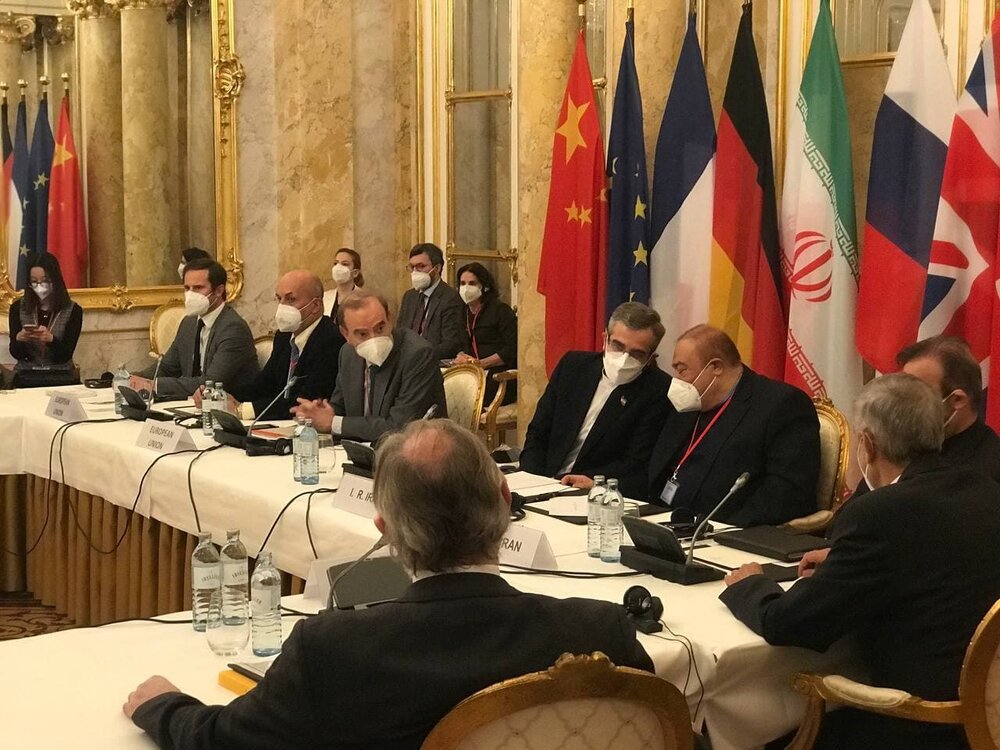Good agreement cannot be achieved through ‘vague and general dialogue’

TEHRAN — As the Vienna talks are put on hold at the request of the Europeans, Iranian experts are in now in Vienna to carefully examine the drafts, clauses, and proposals. Apparently in Western terminology, this is not defined as “seriousness.”
Speaking at a joint press conference with his Syrian counterpart, Iranian Foreign Minister Hossein Amir Abdollahian said that Iran arrived in Vienna with good faith, seriousness, planning and initiative in the first round of new talks. The foreign minister added that he has told EU foreign policy chief Josep Borrell and the foreign ministers of the countries whose diplomats are present in Vienna that their eagerness to resume the talks must be reflected in their goodwill and initiatives.
“We told them bluntly that Raisi's government is a pragmatic and result-oriented government, and that vague and general dialogue will not help solve the problem. If you are concerned about Iran's completely peaceful nuclear program, we also have our own concerns and demands regarding the continuation of sanctions, the non-lifting of sanctions, and non-compliance with the so-called nuclear agreement,” he added.
What can be assessed from the first round of the new talks in Vienna from the narratives put out by the Iranian officials is that the other side came to Vienna to evaluate and assess the Iranian delegation, rather than actually negotiating.
Amir Abdollahian later said, “In order for the other parties to know that we are in Vienna with a plan, we submitted two written draft proposals, one to the sanctions working group and the other to the nuclear working group.”
What the Iranian delegation has presented as a written text is completely within the framework of the Joint Comprehensive Plan of Action (JCPOA), and nothing beyond what has been agreed in the JCPOA has been requested by the Iranian side. This is crystal clear in the words of the Iranian officials, but the Western media outlets like to derail the discussions.
In that regard, the foreign minister stated, “The claim made by some Western parties that Iran has had maximalist demands, our demands are completely in line with the JCPOA and we have not had a post-JCPOA demand.”
During the talks, some media outlets and lobbies tried to suggest that Iran had begun 90% enrichment just as the talks began.
Amir Abdollahian called this a “bold lie,” saying that the claim was raised in a phone call to him on Friday morning by Joseph Borrell, and he told him that it is a bold lie.
“Iran, in the same framework that it has clearly announced and in the framework of the NPT, continues its enrichment of 20% and higher, and does not confirm any news pieces about 90% enrichment. It is a bold lie,” Amir Abdollahian said as he was referring to his conversation with Borrell.
He then clarified for those who wish to listen that Iran does not seek a Plan B.
“We are waiting and trying to achieve the progress that the nation expects in order to lift the sanctions through strong and solid negotiations,” he said.
Discussing the possibility of a temporary agreement, Amir Abdollahian said that Iran does not consider a temporary agreement as beneficial to the country.
“The agreement must be comprehensive, and it must be an agreement that Iran and the people can tangibly feel the use of the economic benefits of the JCPOA and the lifting of sanctions. With the same approach, our team will return to Vienna in the coming days. Most of our team is currently in Vienna and will continue their expert discussions,” he informed the press.
Iran’s chief diplomat has made everything crystal clear. Negotiations will resume soon and Iran is looking for a good agreement, through “solid, strong and logical negotiations.”
If other parties use such a constructive approach, Iran can reach a mutually satisfactory agreement while ensuring the rights and interests of its people. The ball is in the U.S. court.
Leave a Comment